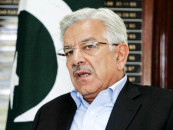Imperialism: Protecting our culture
Cultural imperialism is practice of promoting or artificially injecting culture or language of 1 country into another

The Western world is using different tools of mass media — television being the most influential one — to engender Western values in various cultures around the world. Approximately, 80 percent of the world’s television broadcasts are in English. According to Unesco, approximately 50 per cent of the world’s languages are in danger of extinction by the end of the 21st century while 90 per cent of them are not represented on the internet. All this holds relevance despite the fact that English has reduced communication barriers for people around the world, and we can now interact with those belonging to different cultures quite easily. One does not want a global village with a homogenised culture and language, if it comes at the cost of indigenous cultures and languages.
Globalisation encourages free trade. Consequently, the local audience has access to different media content. If the local work is not up to the mark, the audience will demand foreign content or local programmes based on the format of the foreign content. In Pakistan, since our local, indigenous content is deemed not good enough, foreign media has gained an advantage by showing their own content which in turn supports their own agenda.
Furthermore, the air waves of less-developed countries are often flooded with US produced content, since its selling price to broadcasters is lower compared with the local costs of production. This is called dumping: the economic act of selling goods and services in an overseas market at a price below the cost of production in order to capture that market.
Even though the cultural influence of globalisation is not considered important by policymakers, especially those who belong to the developed countries, the rest of us don’t want a global village and homogenised culture and language at the cost of our individuality, native cultures and languages. Respect for our true, individual identities should be encouraged so we do not become imperfect clones of foreign cultures and this cannot be possible without the support of our government.
Published in The Express Tribune, November 14th, 2013.



















COMMENTS
Comments are moderated and generally will be posted if they are on-topic and not abusive.
For more information, please see our Comments FAQ